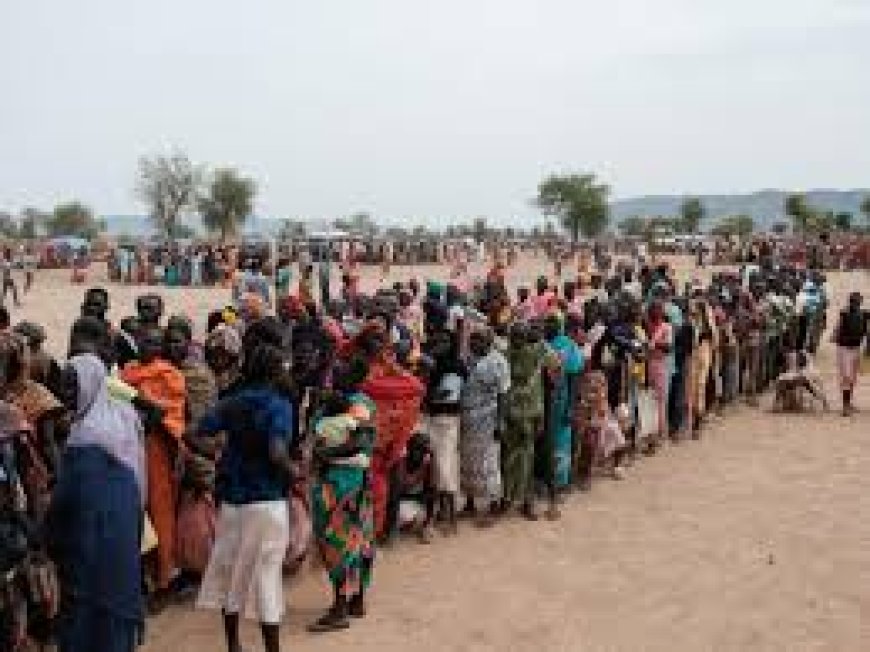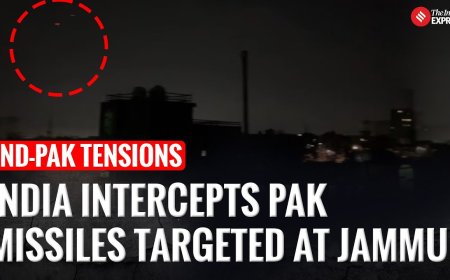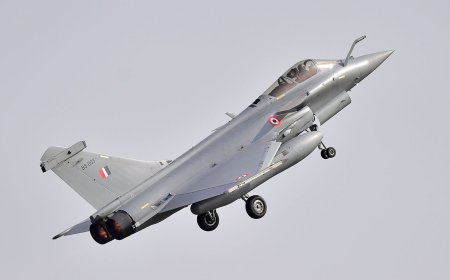Tens of thousands killed, over 13 million displaced: Why Sudan is facing 'world’s worst humanitarian crisis'
Sudan faces the world’s worst humanitarian crisis with over 13 million displaced and tens of thousands killed. Explore the roots of the conflict, economic collapse, and global response.

Escalating Conflict Plunges Sudan into Unprecedented Crisis
Sudan is now in the throes of what the United Nations has termed the “world’s worst humanitarian crisis.” The conflict, which began in April 2023 between the Sudanese Armed Forces (SAF) and the Rapid Support Forces (RSF), has morphed into a catastrophe of epic proportions. Over 13 million people have been displaced, and estimates suggest that more than 150,000 civilians have been killed or are unaccounted for due to targeted violence, airstrikes, starvation, and disease.
The scale of suffering is staggering: entire cities lie in ruins, famine looms large in war-torn regions like Darfur, and humanitarian access is nearly impossible in key conflict zones. Despite the sheer magnitude of the crisis, global attention and financial support remain alarmingly insufficient.
The Genesis of Sudan’s War
The roots of the current conflict can be traced to long-standing tensions between rival military factions that once jointly ruled Sudan. The power struggle between General Abdel Fattah al-Burhan (head of the SAF) and General Mohamed Hamdan Dagalo (commonly known as Hemeti, leader of the RSF) exploded into open warfare over control of the country’s military and political future.
Initially concentrated in the capital, Khartoum, and neighboring Omdurman, the fighting has since spread across much of Sudan, including Darfur, a region with a traumatic history of ethnic cleansing and civil war. Armed militias have taken advantage of the chaos, exacerbating ethnic violence, especially targeting non-Arab populations in West Darfur.
Humanitarian Collapse: Famine, Disease, and Displacement
According to the UN Office for the Coordination of Humanitarian Affairs (OCHA), over 25 million people—more than half of Sudan’s population—are in need of urgent humanitarian assistance. The food security situation has deteriorated rapidly, with 5 million people on the brink of famine.
“We are watching a man-made disaster unfold in slow motion,” said Martin Griffiths, UN Under-Secretary-General for Humanitarian Affairs. “Without a ceasefire and unfettered humanitarian access, hundreds of thousands more could die.”
Over 13.6 million people have been displaced, including 2 million refugees who have crossed into neighboring countries like Chad, Egypt, and South Sudan—many of which are already facing their own economic and humanitarian challenges.
Health Infrastructure in Ruins
Hospitals have been targeted or occupied by armed groups, with only 20% of health facilities in operational condition. Cholera, measles, and malaria outbreaks are spreading due to overcrowding, lack of sanitation, and disrupted vaccination programs.
“The health crisis is spiraling,” said Dr. Amina Ibrahim, a Sudanese physician now working with Médecins Sans Frontières. “We are seeing women give birth in camps without clean water or trained staff, and children dying from malnutrition and treatable infections.”
International Response: Insufficient and Fragmented
While the crisis has been dubbed “the world’s worst,” international response has been tepid. The UN's $2.7 billion humanitarian appeal for Sudan is less than 20% funded. The World Food Programme, already struggling with budget cuts, has been forced to suspend operations in parts of the country due to insecurity.
“The lack of media coverage and geopolitical interest has resulted in a vacuum of international pressure,” said Dr. Alex de Waal, a leading Sudan scholar at Tufts University. “Unlike Ukraine or Gaza, Sudan does not attract headlines or major donor commitments.”
Economic Fallout: A Nation in Collapse
Sudan’s economy, already weakened by decades of mismanagement, sanctions, and past civil wars, has now imploded. The Sudanese pound has lost over 70% of its value since the conflict began. Agricultural production has halted, markets are empty, and inflation has soared above 200%.
The country's once-promising gold sector—dominated by the RSF—has become a source of illicit financing for the war effort, with smuggled gold reportedly flowing to buyers in the Middle East.
“There is effectively no functioning state economy,” said Fatima El-Tahir, an economist based in Khartoum before the war. “People are surviving on remittances and black-market networks. This is unsustainable.”
Investor Outlook: No Stability, No Opportunity
For investors and global markets, Sudan offers a cautionary tale of political instability turning into a total collapse of governance and capital markets. Infrastructure investments have been frozen, trade routes have been severed, and foreign direct investment has come to a complete halt.
The Port of Sudan, a key maritime hub on the Red Sea, has seen reduced traffic amid fears of regional spillover, particularly with increasing Houthi rebel activity in the region.
“With no clear end to the conflict, Sudan is effectively off the map for global investors,” said Michael Hudson, Africa analyst at Eurasia Group. “Even sovereign debt restructuring is off the table. It's a failed state scenario.”
The Road Ahead: Grim Forecast Without Immediate Intervention
Despite calls for ceasefire talks in Jeddah and regional mediation attempts by the African Union and IGAD, neither faction shows a willingness to cede power. Civilians, caught in the crossfire, continue to suffer the consequences.
Unless immediate action is taken—including massive increases in humanitarian funding, robust diplomatic pressure, and secured humanitarian corridors—Sudan’s situation may worsen further, potentially triggering destabilization across the Horn of Africa and beyond.
What's Your Reaction?
 Like
0
Like
0
 Dislike
0
Dislike
0
 Love
0
Love
0
 Funny
0
Funny
0
 Angry
0
Angry
0
 Sad
0
Sad
0
 Wow
0
Wow
0












































































